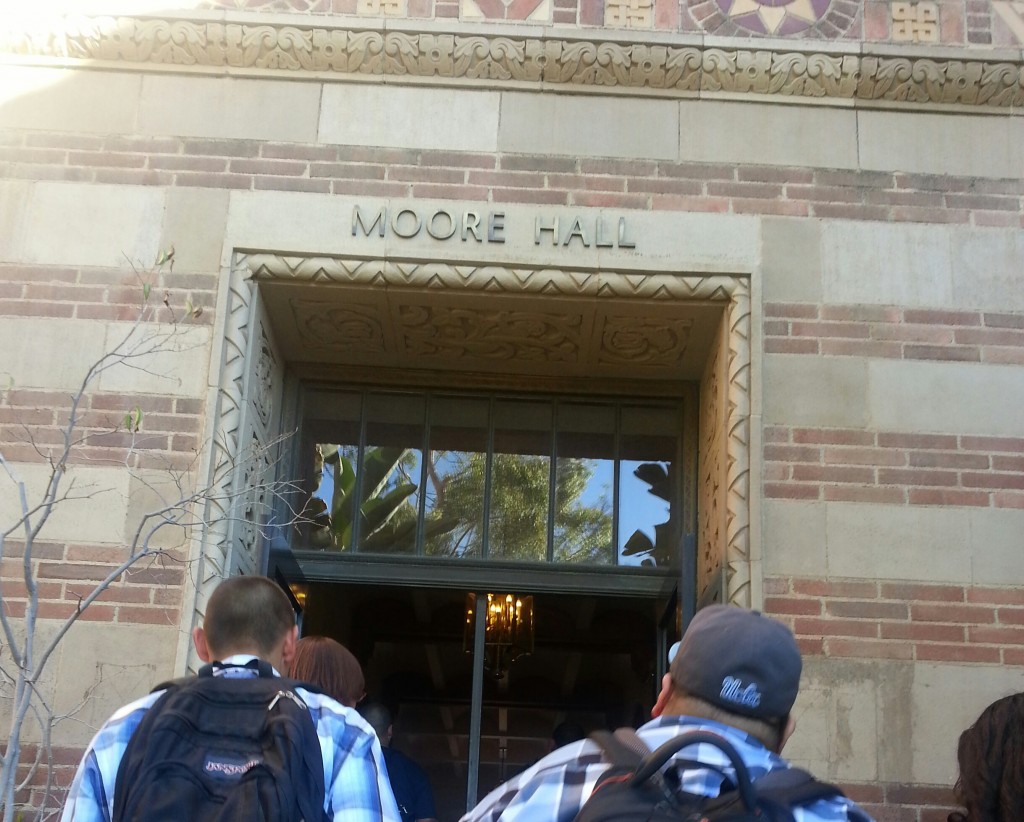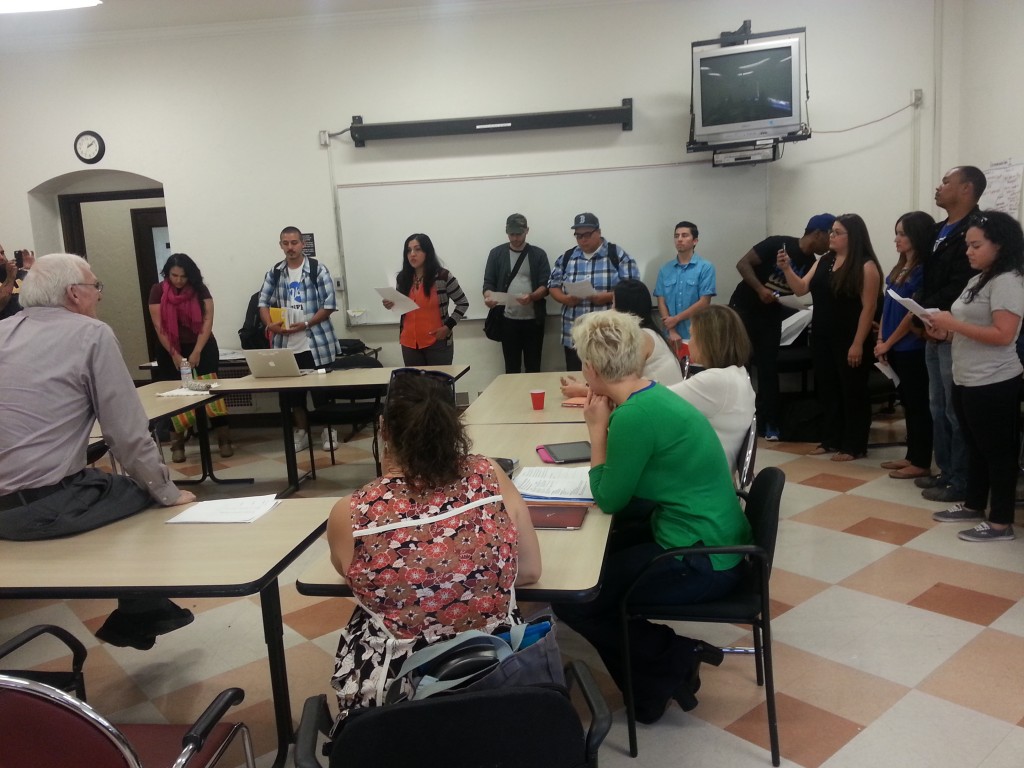If you walked past the Kerckhoff patio at around 1:45 Thursday afternoon, you would have seen a group of about thirty undergraduate and graduate students. This congregation of people from different age groups, ethnicities, sexual orientations came together with the task of demanding open ears and changes from the university that will benefit students of color.
Upon arrival, protest organizers handed supporters an agenda detailing the events of the sit-in. The small group outside Moore Hall chatted and discussed friends that they unknowingly shared, while others explicitly explained their personal reasoning for being there. For instance, Johnny Ramirez, a graduate student, proclaimed, “We will not be professionalized, we will not be socialized, we will not be domesticated to the point where we lose our voice, our voice will not be disrespected!”
The clock strikes 2 o’ clock and silence prevailed as the protest began. Students climbed the ascending stairs of Moore Hall and headed straight to room 3041.
One by one, students lined the front of the classroom as four students, already seated, crinkled their foreheads and rose their eyebrows to the purposeful disruption of their instruction. iPhones are out and recording the protestors who have tears in their eyes.
One of the students scheduled to do her mock presentation of her dissertation, begins to explain the reason for this assembly. She reads from an average sheet of paper piercing words of declaration related to her difficult experience as a student at the University of California, Los Angeles. This is an “Act of support for past, present and future for all students in racial and ethnic studies.”
Personal accounts of prejudice experienced on campus are shared by the stakeholders around room; the students attempting to bring a sense of understanding to both their supporters and the students of the class and the professor.
As the narratives are shared, the professor in question attempts to stop the sharing. A look of frustration and disgust emerges on the students’ faces as his question appears as a disregard for the importance of their experiences. The professor is politely asked to wait until the end, and the story telling continues.
Tears flood from listeners as first generation college students who have worked all their lives to make a space for themselves at the university express their feelings of offense and neglect in the classroom.
Others explain their every day struggles with the arrogance of other students at the institution, and the challenges they faced from both professors and students about their identities. They described their anger at their lack of acceptance as a student at UCLA using the words of the now viral spoken word poem by Sy Stokes, “I have not been proud to be a UCLA Bruin.”
The participants exclaimed fierce words in the discussion that followed as they described the severity of the protest’s circumstances, “The personal is political, and the political personal.”
When the students are finally asked about their intentions for the sit-in, they shared some of the goals and the demands they have for the institution. The demands were not only for classes that would mentor students, but also for comfortable learning environments. They also asked that students of color not be tolerated in classrooms, but rather accepted as students who have every right to be a part of the student body.
An act of this magnitude on UCLA’s campus is a call to action by the few graduate students of color who represent our futures as undergraduate students. It serves as a constant reminder that we are being treated unfairly, but that we possess the power with our words and our presence to change the things that are wrong in our society on both a communal and national scale. We should always understand that our underrepresentation as students of color on this predominantly White campus is evidence that although we have been added to the equation we are not equal.
Author: Altagracia Alvarado
Nommo Staff


